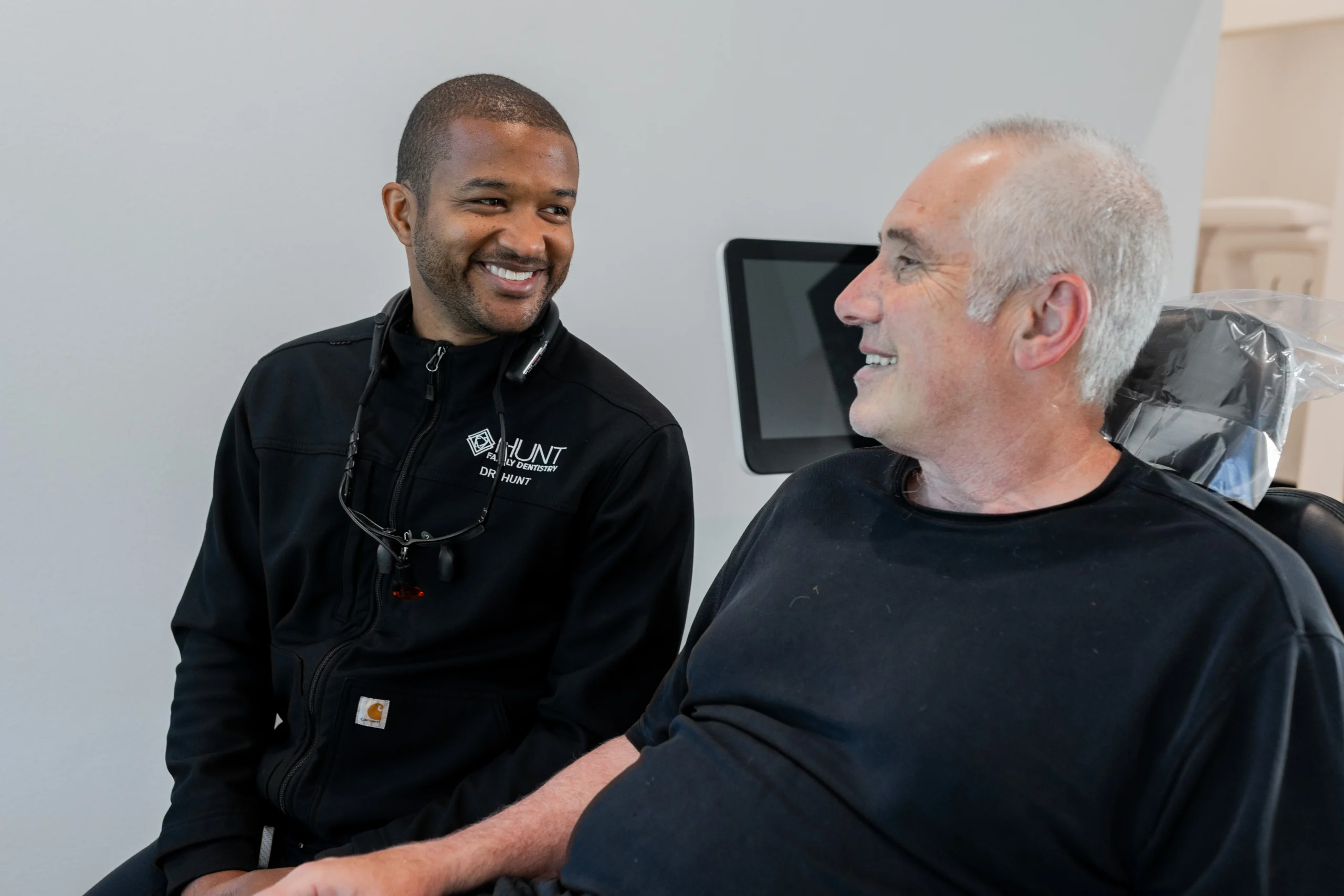Most parents understand the importance of caring for their child’s permanent teeth, but what about baby teeth? Many parents believe that maintaining them isn’t as critical since baby teeth eventually fall out. This common misconception can have lasting consequences on a child’s health and development.
Hunt Family Dentistry, a trusted family dentist in Frisco, is here to set the record straight. Learn why baby teeth are more important than you think, the potential issues that arise from neglect, and how to prioritize your child’s dental health.
Why Baby Teeth Matter
Helping with Speech and Chewing
Baby teeth are crucial for developing proper speech patterns. They help children form sounds and learn how to articulate words. Without healthy baby teeth, children may struggle with pronunciation or speech delays.
Chewing is another critical function. Baby teeth allow children to break down food effectively, which aids digestion and ensures they receive proper nutrition for growth. Missing or decayed baby teeth can make eating difficult and lead to poor dietary habits.
Guiding Permanent Teeth
Baby teeth act as placeholders for permanent teeth, ensuring they emerge in the correct position. When baby teeth are lost too early due to decay or injury, it can cause permanent teeth to drift or come in misaligned.
Boosting Confidence
Have you noticed how proud kids are when they show off their teeth? A bright, healthy smile gives children confidence. On the other hand, poor oral health or missing teeth can impact their self-esteem and social interactions.
Consequences of Neglecting Baby Teeth
Cavities and Tooth Decay
Tooth decay is one of the most common chronic childhood diseases, and baby teeth are not immune. The Centers for Disease Control and Prevention (CDC) reports that 46% of children from 2 to 19 have untreated cavities, which include cavities in baby teeth. If left untreated, primary teeth decay can cause pain and infections that affect the underlying permanent teeth.
Misalignment of Permanent Teeth
When baby teeth are extracted or fall out prematurely, it disrupts the natural spacing for permanent teeth. This misalignment can result in overcrowding, crooked teeth, and an increased need for orthodontic treatments in the future from our family dentist in Frisco.
Pain and Infection
Healthy baby teeth are key to preventing oral pain and infection. Decayed teeth often lead to infections that may spread to other parts of the mouth or even the bloodstream, causing more serious health concerns.
Challenges in Learning and Eating
Dental problems can lead to difficulties in eating, making it hard for children to focus in school or enjoy their meals. The discomfort caused by dental issues also negatively impacts their quality of life.
The Role of a Family Dentist in Caring for Baby Teeth
The good news is that regular dental care can help avoid these issues altogether. At Hunt Family Dentistry, we recommend that children visit our family dentist in Frisco every six months to maintain optimal oral health. Here’s why these visits are so important:
- Early Detection of Problems: Regular dental checkups allow us to catch potential issues, like cavities or alignment problems, before they become bigger concerns.
- Professional Cleaning: Even with the best brushing and flossing habits, plaque can build up in places that are hard to reach. Cleanings maintain healthy teeth and gums.
- Guidance for Parents: A family dentist provides personalized advice on how to care for your child’s teeth, including tips for brushing, flossing, and diet.
- Creating Positive Dental Habits: Regular visits normalize dental care for your child, reducing anxiety about future appointments and establishing lifelong habits.
Practical Tips for Baby Teeth Care at Home
Start Brushing Early
Begin cleaning your baby’s gums before the first tooth appears (at about six months). Once teeth come in, use a small, soft-bristled toothbrush and a tiny amount of fluoride toothpaste (the size of a grain of rice, according to the American Dental Association). By age 3, you can increase this to a pea-sized amount.
Encourage Flossing
As soon as two teeth touch, it’s time to introduce flossing. Help your child floss daily to remove plaque and food particles from between their teeth. Our Frisco family dentist can also help with this.
Limit Sugary Foods and Drinks
Sugar is a major culprit behind tooth decay. Limit sugary snacks and drinks in your child’s diet, and encourage water or milk as the go-to beverage.
Avoid Using Bottles at Bedtime
Putting your child to bed with a bottle filled with milk or juice can cause tooth decay, often referred to as “bottle rot.” Stick to water for nighttime bottles if needed.
Be a Role Model
Children often mimic their parents’ habits. Show them how you brush and floss your own teeth, and make it a fun family activity.
Make Your Child’s Smile a Priority
Baby teeth are more than just placeholders; they play a crucial role in your child’s health and development. At Hunt Family Dentistry, we can help you keep kids’ primary teeth in good shape until their permanent teeth are ready to come in. Book a visit with our family dentist in Frisco today and give your child the gift of a healthy, confident smile that lasts a lifetime—even if their baby teeth don’t.




